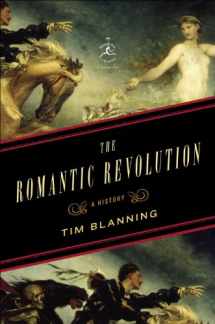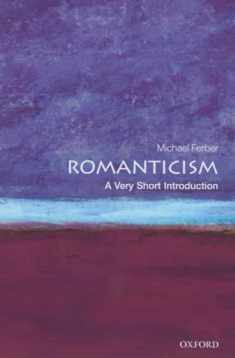
The Romantic Revolution: A History (Modern Library Chronicles)
Book details
Summary
Description
From the preeminent historian of Europe in the eighteenth and nineteenth centuries comes a superb, concise account of a cultural upheaval that still shapes sensibilities today. Long overshadowed by the contemporaneous American, French, and Industrial revolutions, the Romantic Revolution finally receives its due in Tim Blanning’s bold and brilliant work.
A rebellion against the rationality of the Enlightenment, a rejection of “the Academy” in favor of public opinion, Romanticism was a profound shift in expression that altered the arts and ushered in modernity, even as it championed a return to the intuitive and the primitive. Blanning describes its beginnings in Rousseau’s novel La Nouvelle Héloïse, the biggest bestseller of the eighteenth century, a work that placed the creator—and not the created—at the center of aesthetic activity and led to the virtual worship of creative geniuses by the general public.
Blanning reveals the glamorizing of artistic madness and suicide in Goethe’s novel The Sufferings of Young Werther and the ballet Giselle; the role of sex as a psychological force in Friedrich Schlegel’s novel Lucinde; the importance of mind-altering drugs to the fictional protagonist of Confessions of an English Opium Eater and to the composer Hector Berlioz in his Symphonie fantastique; and the use of naïve, dreamlike imagery in Goya’s paintings of monsters, devils, and witches.
Whether it was the new notion of “sex appeal” in the fames of Paganini, Liszt, and Byron, or the celebration of accessible storytelling in the novels of Walter Scott (the most popular writer of the day), The Romantic Revolution unearths the origins of ideas now commonplace in our culture. It is the best introduction to an essential time whose influence would far outlast the mechanistic “age of the railway” that, in the mid-nineteenth century, replaced it.


We would LOVE it if you could help us and other readers by reviewing the book
Book review




